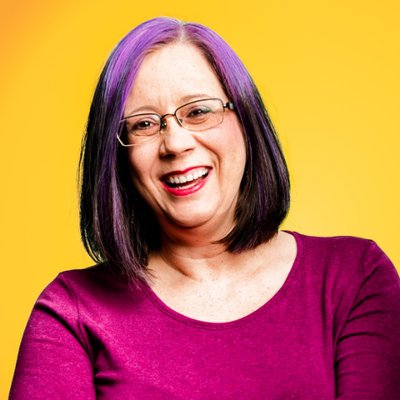Rhonda is a settler/Dene research, writing and editing consultant. She is dedicated to increasing the inclusion of underrepresented communities in Canadian literature. A founding member of the Indigenous Editors Association, she specializes in editing manuscripts by and about Indigenous Peoples. As editor of Write, The Writers’ Union of Canada magazine, she approaches her work from a culturally aware perspective to ensure that all voices are represented.

Sue Archer: In the Spring/Summer 2018 issue of Active Voice, which you edited, you spoke about how the goal of the Indigenous Editors Association (IEA) is “to nurture Indigenous editors and writers to ensure respectful representation of Indigenous peoples in Canadian literature.” What are your thoughts on this goal in 2020? Has the publishing landscape changed at all? Are there particular areas of challenge?
Rhonda Kronyk: The publishing industry must recognize that we will have to keep promoting the IEA’s mission until manuscripts that represent Indigenous Peoples from a negative colonial-only perspective are no longer published. There is still a lot of work to do, and I don’t believe that will change in the foreseeable future.
However, we have made progress. For example, the Association of Canadian Publishers has created the Freelancers from Diverse Communities Database, and BIPOC of Publishing in Canada will create more opportunities for diverse groups to be included in the industry. Yet, there is a dearth of inclusion in leadership roles at almost every publishing house in this country. Until that changes, the industry cannot sit back and pat themselves on the back for the work they’ve done so far.
In my own work, the publishers I work with have willingly adjusted their processes and style guides to incorporate the guidelines Dr. Greg Younging set out in Elements of Indigenous Style. This encouraging trend shows an intentional choice to find new ways to work that are culturally respectful.
One of the biggest challenges I have is that publishers do not yet budget enough time or money for this work. It can take me 30 per cent longer to edit manuscripts with Indigenous content because the author and I may have to make many tens of decisions that are unique to these projects. This is something publishers need to take into account or Indigenous editors will not be able to afford to do this important work to the standard that it requires.
SA: On its website, the IEA describes its current focus areas, which involve a lot of outreach. Could you share some details with us on what the IEA is currently working on and how Editors Canada members can potentially help support these efforts?
RK: The IEA’s plans to restart the Indigenous Editors Circles were derailed by COVID-19 this year. However, we have received approval to shift funding to host four professional development webinars that will begin in the fall of 2020. Another important part of the IEA’s mission is to connect Indigenous professionals within the industry. This helps create a mutual support network that the entire industry will benefit from.
Editors Canada members have been incredibly supportive of the IEA’s work, and we acknowledge that support. Right now, you can find a link on our website to a GoFundMe campaign to fund professional development. If a financial contribution isn’t feasible, please email the IEA and ask how you can volunteer. And it is always helpful when you promote our work on social media.
However, the most important thing members can do is also the most difficult, especially in challenging economic times. To put it bluntly, rather than take this work on themselves, non-Indigenous editors need to encourage publishers to hire Indigenous editors.
SA: Thank you for sharing your thoughts on how we can best support the work of the IEA. Editors also play a key role in identifying and addressing harm to Indigenous and other marginalized communities in the manuscripts they edit. You’re presenting an Editors Canada webinar on July 9 about how language choice matters. Could you share a little about what you will be discussing?
RK: The work I’ve been doing on language choices came about because I knew I had to disrupt my own thinking. For most of my life, I didn’t take the time to reflect on how language choices affect others. This didn’t stem from malice, but from the unrecognized privilege of not constantly being the recipient of words or phrases that have racism and bigotry built into them. We stand at a proverbial crossroads where we each must make decisions whose effects go beyond ourselves. One component of the decision-making process is to better understand the roots of many of the words that are a common part of our lexicon and that makes up a significant part of the webinar.
SA: Last question. What is your favourite book from 2020 so far? And what book are you most looking forward to reading?
RK: I want to list most of the books I’ve edited recently because I truly work on incredible projects! I hope you will indulge me because I’d like to recommend three: Land-Water-Sky / Ndè-Tı-Yat’a by Katłıà (Roseway, October 2020), Brotherhood to Nationhood: George Manuel and the Making of the Modern Indian Movement by Peter McFarlane with Doreen Manuel (Between the Lines, October 2020), and Northern Lights by Kazim Ali (Goose Lane, Spring 2021). Outside of my work, I’m looking forward to Angela Sterritt’s Unbroken (Greystone), which weaves her story as an Indigenous woman who survived abuse with the stories of the treatment of Indigenous women in Canada.
___
Previous post from Sue Archer: Diversity in Publishing: An Interview with Sangeeta Mehta
The Editors’ Weekly is the official blog of Editors Canada. Contact us.
Discover more from The Editors' Weekly
Subscribe to get the latest posts sent to your email.
